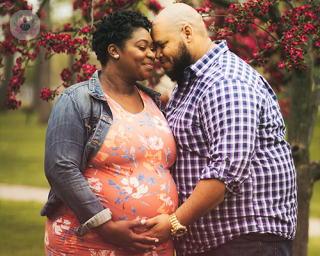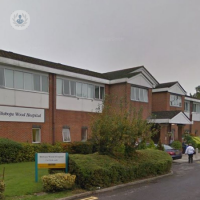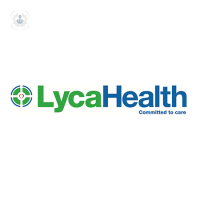What is a high-risk pregnancy?
A high-risk pregnancy is one that involves complications or associated factors that pose a risk to the health of the mother and the foetus. Currently, around 10 per cent of pregnancies are considered high risk.
Why is a pregnancy considered high-risk?
The main factors that can identify a pregnancy as high-risk include:
- High blood pressure – this can damage the mother’s kidneys, and increases the risk of preeclampsia and the baby being born underweight.
- Diabetes – high blood sugar levels can lead to birth defects, so mothers with diabetes must keep their blood sugar under control.
- Age of the mother – mothers over 35 years (especially first-time mothers) are at a higher risk of developing fibroids, high blood pressure, and preeclampsia during pregnancy, and have a higher probability of the child being born with a chromosome abnormality. Teen mothers are also at a higher risk of preeclampsia and high blood pressure, as well as anaemia and going into premature labour.
- Weight of the mother – obesity increases the risk of high blood pressure, preeclampsia, gestational diabetes, neural tube defects, caesarean delivery, and stillbirth. The baby is also at an increased risk of heart problems.
- Reproductive system abnormalities – problems in the uterus or ovaries, for example fibroids, can cause complications, including premature births or even miscarriages.
- Exposure to harmful substances – exposure to radiation, toxins, or chemicals can put both mother and child at risk. Additionally, if the mother takes drugs, smokes, or consumes alcohol during pregnancy, she could harm the foetus.
- Multiple births – giving birth to twins or triplets carries higher risk than just one baby, and mothers carrying multiple babies frequently go into labour prematurely.
When should you see a doctor?
Pregnancy proceeds differently in each woman, but there are some warning signs to go immediately to the doctor:
- High fever – especially if it lasts for several days, as the high body temperature can harm the foetus.
- Pain in one side of the belly at the beginning of pregnancy, since it could be an ectopic pregnancy
- Pain, discomfort and blood in urine
- Continuous vomiting
- Coughing up blood
- Frequent diarrhoea that lasts several days, sometimes accompanied by mucus or blood
- Intense headaches, accompanied by vision disorders such as blurred vision, seeing spots or flashes
- Inflammation of the hands, ankles or face (this can be a symptom of preeclampsia)
- Abdominal pain similar to a very intense contraction that does not stop, as well as cramps in the abdomen
- Heavy vaginal bleeding, which poses a significant risk of miscarriage
Monitoring of high-risk pregnancy
If a pregnancy is identified as being high risk, it should be monitored closely by the mother’s doctors, with regular prenatal check-ups.
The mother should try to avoid any factors within her control that could cause complications, such as avoiding alcohol and tobacco consumption and maintaining a healthy body weight.
03-20-2014 04-27-2023High-risk pregnancy
Ms Vinita Singh - Obstetrics & gynaecology
Created on: 03-20-2014
Updated on: 04-27-2023
Edited by: Conor Lynch
What is a high-risk pregnancy?
A high-risk pregnancy is one that involves complications or associated factors that pose a risk to the health of the mother and the foetus. Currently, around 10 per cent of pregnancies are considered high risk.
Why is a pregnancy considered high-risk?
The main factors that can identify a pregnancy as high-risk include:
- High blood pressure – this can damage the mother’s kidneys, and increases the risk of preeclampsia and the baby being born underweight.
- Diabetes – high blood sugar levels can lead to birth defects, so mothers with diabetes must keep their blood sugar under control.
- Age of the mother – mothers over 35 years (especially first-time mothers) are at a higher risk of developing fibroids, high blood pressure, and preeclampsia during pregnancy, and have a higher probability of the child being born with a chromosome abnormality. Teen mothers are also at a higher risk of preeclampsia and high blood pressure, as well as anaemia and going into premature labour.
- Weight of the mother – obesity increases the risk of high blood pressure, preeclampsia, gestational diabetes, neural tube defects, caesarean delivery, and stillbirth. The baby is also at an increased risk of heart problems.
- Reproductive system abnormalities – problems in the uterus or ovaries, for example fibroids, can cause complications, including premature births or even miscarriages.
- Exposure to harmful substances – exposure to radiation, toxins, or chemicals can put both mother and child at risk. Additionally, if the mother takes drugs, smokes, or consumes alcohol during pregnancy, she could harm the foetus.
- Multiple births – giving birth to twins or triplets carries higher risk than just one baby, and mothers carrying multiple babies frequently go into labour prematurely.
When should you see a doctor?
Pregnancy proceeds differently in each woman, but there are some warning signs to go immediately to the doctor:
- High fever – especially if it lasts for several days, as the high body temperature can harm the foetus.
- Pain in one side of the belly at the beginning of pregnancy, since it could be an ectopic pregnancy
- Pain, discomfort and blood in urine
- Continuous vomiting
- Coughing up blood
- Frequent diarrhoea that lasts several days, sometimes accompanied by mucus or blood
- Intense headaches, accompanied by vision disorders such as blurred vision, seeing spots or flashes
- Inflammation of the hands, ankles or face (this can be a symptom of preeclampsia)
- Abdominal pain similar to a very intense contraction that does not stop, as well as cramps in the abdomen
- Heavy vaginal bleeding, which poses a significant risk of miscarriage
Monitoring of high-risk pregnancy
If a pregnancy is identified as being high risk, it should be monitored closely by the mother’s doctors, with regular prenatal check-ups.
The mother should try to avoid any factors within her control that could cause complications, such as avoiding alcohol and tobacco consumption and maintaining a healthy body weight.


What makes a pregnancy high risk?
By Dr Srividhya Sankaran
2024-12-30
A high-risk pregnancy involves increased health risks for a mother and her baby before, during, or after the pregnancy. Patients with high-risk pregnancies require specialised maternal-fetal care. Here, Dr Srividhya Sankaran, renowned consultant in maternal-fetal medicine and obstetrics based in London, provides a comprehensive insight into high-risk pregnancies. See more


Facing a high-risk pregnancy? Learn how maternal medicine provides expert support every step of the way
By Ms Kenga Sivarajah
2024-12-18
High-risk pregnancies are not uncommon – around 10 per cent of pregnancies are classified as ‘high risk’. While the term may seem scary, the wonders of modern obstetric medicine mean that mother and baby have better chances of making it through the issues safely. In this article, an expert consultant obstetrician highlights how maternal medicine can be utilised in every stage of a high-risk pregnancy. See more


Early pregnancy: what to expect during the first trimester of your pregnancy
By Dr Amelia Davison
2024-12-17
During the first three months of pregnancy, your baby rapidly grows, developing a brain, spinal cord and organs. Your body also goes through many swift changes, releasing hormones that affect almost every organ in your body. Dr Amelia Davison, one of our top consultant obstetrician and gynaecologists based in London, reveals what to expect in your first trimester and the tests you might need to undergo. See more
Experts in High-risk pregnancy
-
Dr Vasso Terzidou
Obstetrics & gynaecologyExpert in:
- Antenatal care
- Premature birth
- Caesarean
- Cervical cerclage
- High-risk pregnancy
- Natural childbirth
-
Mr Keith Duncan
Obstetrics & gynaecologyExpert in:
- Breakthrough bleeding
- Caesarean
- Childbirth
- Multiple pregnancy
- Ultrasound
- High-risk pregnancy
-
Mr Ian Chilcott
Obstetrics & gynaecologyExpert in:
- Caesarean
- High-risk pregnancy
- Natural childbirth
- Hysterectomy
- Minimal access surgery (keyhole surgery)
- Vaginal prolapse
-
Dr Alison Wright
Obstetrics & gynaecologyExpert in:
- Childbirth
- High-risk pregnancy
- Urogynaecology
- Bladder problems
- Menopause
-
Dr Spyros Bakalis
Obstetrics & gynaecologyExpert in:
- Fetal medicine
- Controlling risk pregnancy and birthing
- Multiple pregnancy
- Childbirth
- High-risk pregnancy
- Pregnancy
- See all

Bishops Wood Hospital - part of Circle Health Group
Bishops Wood Hospital - part of Circle Health Group
Mount Vernon Hospital, Rickmansworth Rd, Northwood HA6 2JW
No existe teléfono en el centro.
By using the telephone number provided by TOP DOCTORS, you automatically agree to let us use your phone number for statistical and commercial purposes. For further information, read our Privacy Policy
Top Doctors

LycaHealth Canary Wharf
LycaHealth Canary Wharf
1 Westferry Circus, Canary Wharf. E14 4HD
No existe teléfono en el centro.
By using the telephone number provided by TOP DOCTORS, you automatically agree to let us use your phone number for statistical and commercial purposes. For further information, read our Privacy Policy
Top Doctors

Dr Duncan Birth - Mr Keith Duncan
Dr Duncan Birth - Mr Keith Duncan
212 Great Portland Street, London. W1W 5AH
No existe teléfono en el centro.
By using the telephone number provided by TOP DOCTORS, you automatically agree to let us use your phone number for statistical and commercial purposes. For further information, read our Privacy Policy
Top Doctors
-
Bishops Wood Hospital - part of Circle Health Group
Mount Vernon Hospital, Rickmansworth Rd, Northwood HA6 2JW, West LondonExpert in:
- Vascular Surgery
- Cancer
- Cardiology
- General Surgery
- Neurological spinal surgery
- Orthopaedic surgery
-
LycaHealth Canary Wharf
1 Westferry Circus, Canary Wharf. E14 4HD, Central LondonExpert in:
- Cardiology
- Dermatology
- Diagnostic Imaging
- Women’s health
-
Dr Duncan Birth - Mr Keith Duncan
212 Great Portland Street, London. W1W 5AH, Central LondonExpert in:
- Ultrasound
- Pregnancy
- Multiple pregnancy
- See all
- Most viewed diseases, medical tests, and treatments
- Tubal factor infertility
- PGT-A
- Complex endometriosis
- Fertility preservation
- Female infertility
- Ovulatory disorders
- Surrogacy
- PGT-M
- Menopause support
- Pelvic ultrasound








